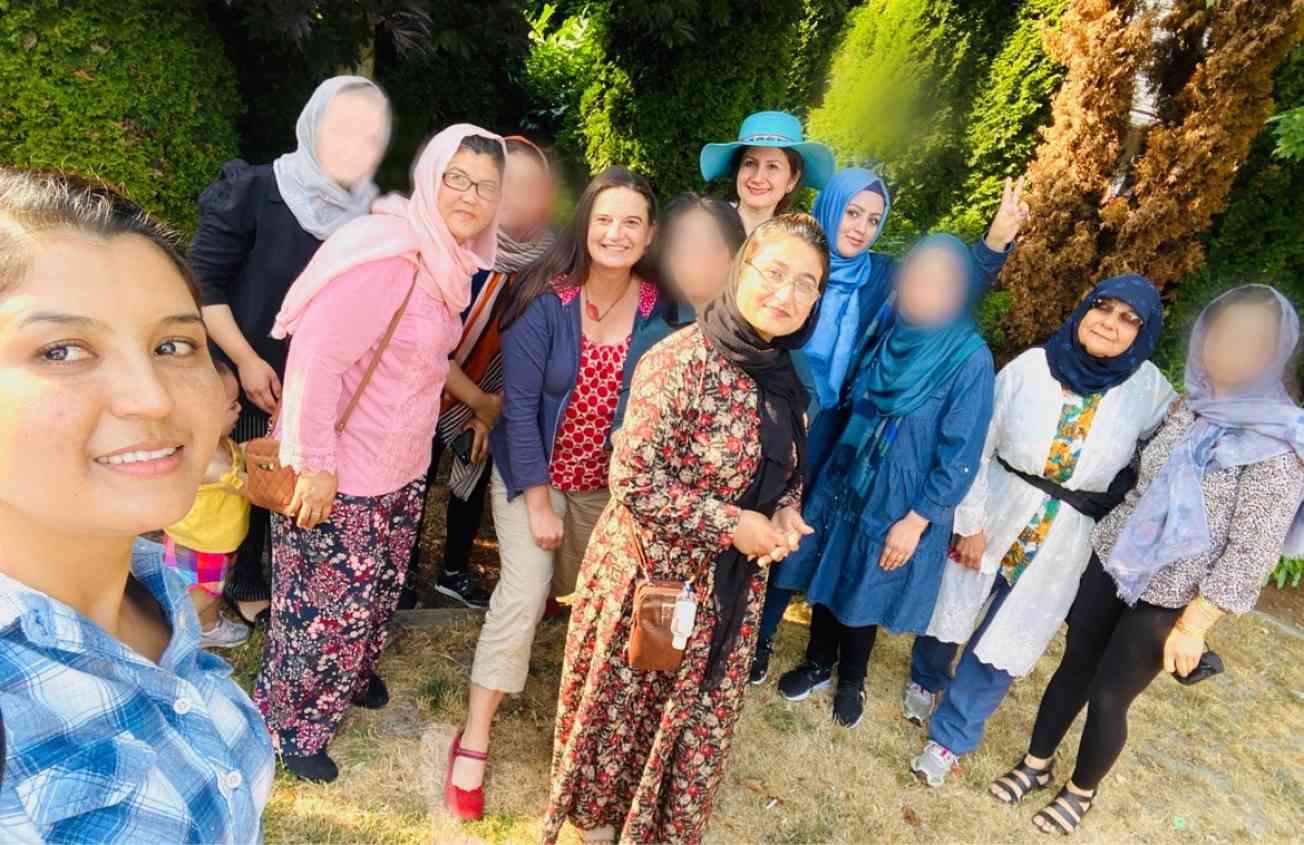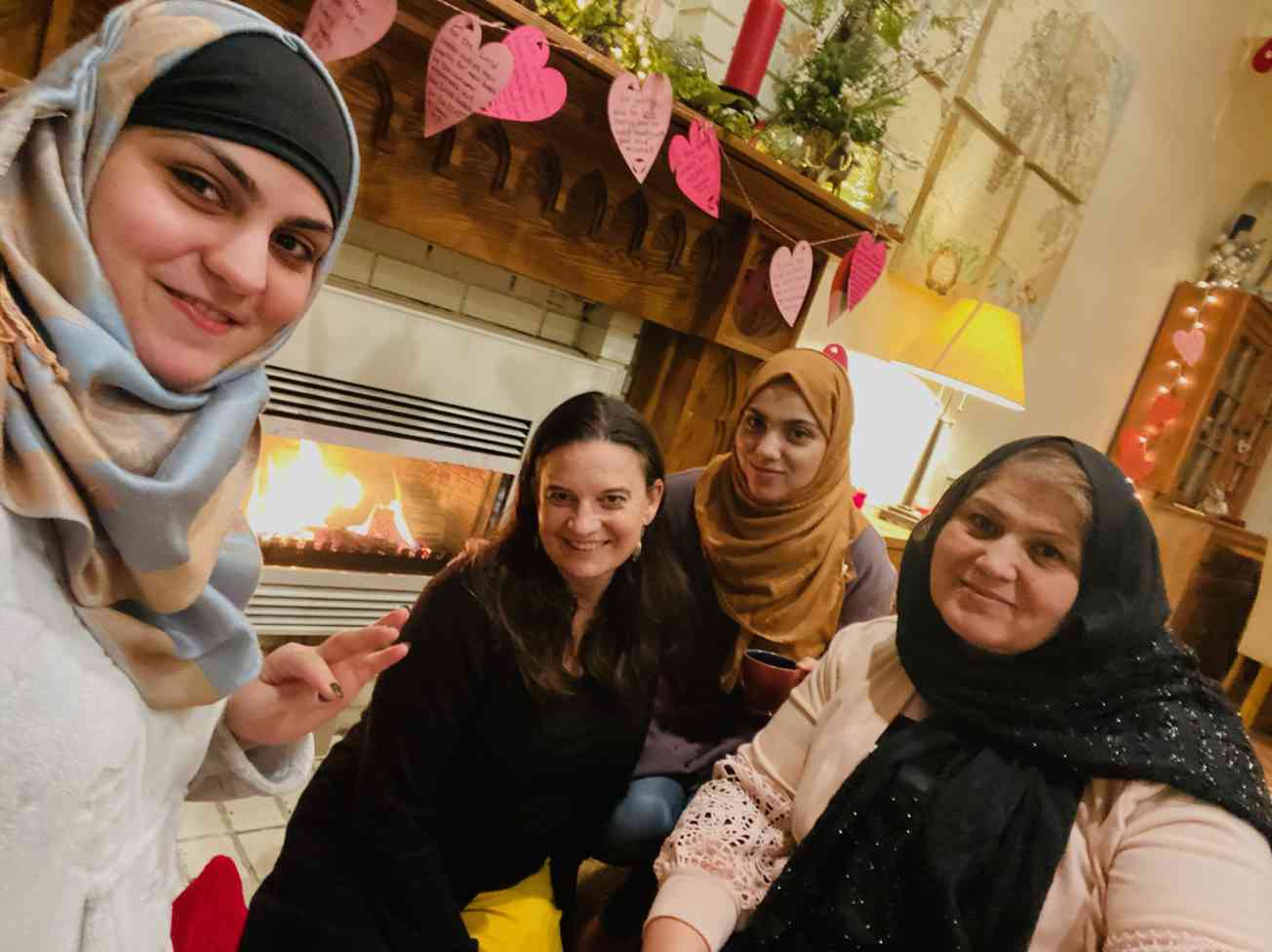
Like all of you, I watched the news in horror and disbelief last August. We saw the Taliban enter Kabul, the Afghan government crumble, US troops and personnel evacuate, and our Afghan allies left fearing and fleeing for their lives. That week I was invited to a gathering of friends from the Afghan community to share stories, offer support, and strategize. Locally I’ve worked with Whole Heart Refugee Alliance (WHRA), an organization focusing on Afghan refugees since 2018. WHRA had already forged partnerships with many other like-minded organizations in the Puget Sound, thus preparing us to work collaboratively in a crisis. Some of our Afghan friends, welcomed/mentored by WHRA over the last couple of years, are now employed at local resettlement agencies helping their countrymen establish a new life in these difficult circumstances. Together we meet with new families in their homes to help with apartment set up and career counseling. We’ve connected with a vibrant interfaith network of individuals, congregations, and organizations to deal with urgent needs of the many Afghan families arriving with nothing but the clothes on their backs. It is inspiring to work side by side with my smart, capable, empathetic Afghan friends to support new arrivals.

Employment Resources for Newcomers:
Here are a few tips and tricks we’ve found for alleviating underemployment of incoming professionals, especially those with technical or medical backgrounds. As individuals we can meet with new arrivals to update their resumes and arrange for them to meet a professional in their field. For example, I invited a friend who is a local physician to meet individually with Afghan medical professionals in my home. Together we look over the updated resumes and official documents (transcripts, certificates, etc.) and do recommended edits based on industry standards. Finally, we add this local professional to the resume itself as a reference. This has proven very helpful landing better paying jobs. Lots of positions are available in Public Health and as First Responders (EMT).
Upwardly Global https://www.upwardlyglobal.org. Newcomers to the U.S. are more educated than at any other time in our history: 45% of recently arrived immigrants have at least a bachelor’s degree. Yet more than 2 million immigrants and refugees who have degrees and professional work experience from their home countries face systemic barriers that leave them unemployed or working in low wage jobs in the United States. Upwardly Global is the first and longest-serving national organization that helps these individuals restart their careers and bring their skills and perspectives into the American workforce. Upwardly Global’s mission is to eliminate employment barriers for immigrant and refugee professionals and advance the inclusion of their skills into the U.S. economy. We envision an equitable, welcoming country where everyone–including immigrants, refugees, and asylees–can fully contribute and thrive.
The Welcome Back Initiative https://www.wbcenters.org builds a bridge between the pool of internationally trained health workers already living in the United States and the need for linguistically and culturally competent health services in underserved communities. There are currently eleven Welcome back Centers housed at community colleges in nine states. We are lucky to have 2 Welcome Back Centers here in the Puget Sound.

Early in the pandemic I met the “super team” as they call themselves. This family works together like a well-oiled machine: Mrs. Rahami (a college graduate, widow, single working mom) and her two daughters, the 16-year-old who was taught to drive by her older brother before they left Afghanistan and the 14-year-old with the best English in the family. Now the girls are both old enough to work at McDonalds together. They send money to their big brother in Afghanistan. Mrs. Rahami works as a seamstress tailoring wedding dresses. We found a local donor to provide a sewing machine so she can do extra sewing work from home. After the Taliban invasion in August, the “super team” went into high gear to save their brother who is at risk because he was working at the US embassy. After learning about state government in a class at school the “super team” decided to take a road trip by themselves to the state capital in Olympia to lobby their representatives about the Afghan refugee evacuation. They were excited to learn about TSOS Advocacy efforts and have been involved with making calls to members of Congress to advocate for the Afghan Readjustment Act. We’re so lucky to have these powerful women in Washington state!
Afghan Arrivals to Washington State: Since the end of September, Washington has welcomed more than 2,500 Afghan refugees through Operation Allies Welcome, which includes over 130 people through the Washington State Afghan Placement and Assistance initiative. More than 75% of recent arrivals have resettled in King, Snohomish and Pierce counties. Approximately 13% resettled in Spokane, 5% in Clark County, 3% in Benton-Franklin and less than 1% in Whatcom County. Washington is also home to multiple Sponsor Circle groups that together will welcome over 70 people. Sponsor Circles is a community-led, private sponsorship model for welcoming Afghan newcomers to local communities.

Afghan Backgrounder: CORE, the Cultural Orientation Resource Exchange, and IRC recently developed a backgrounder on Afghanistan. This document covers the historical, political, and cultural information to support a general understanding of the Afghans arriving in the United States. CORE’s website offers additional information and resources: https://coresourceexchange.org/working-with-afghans/
Washington to Washington: Afghan Resettlement: TVW did an episode on welcoming Afghans to Washington State. It features the great work that is happening across the state and includes interviews with impacted families. https://www.youtube.com/watch?v=_Q3xKq9fby0
King County Metro Subsidized Annual Pass: Here is a brief overview and information on how to enroll. Once customers are enrolled, they’re provided with the How-To Guide that lets them know how to use their subsidized annual pass. https://kingcounty.gov/subsidizedannualpass.